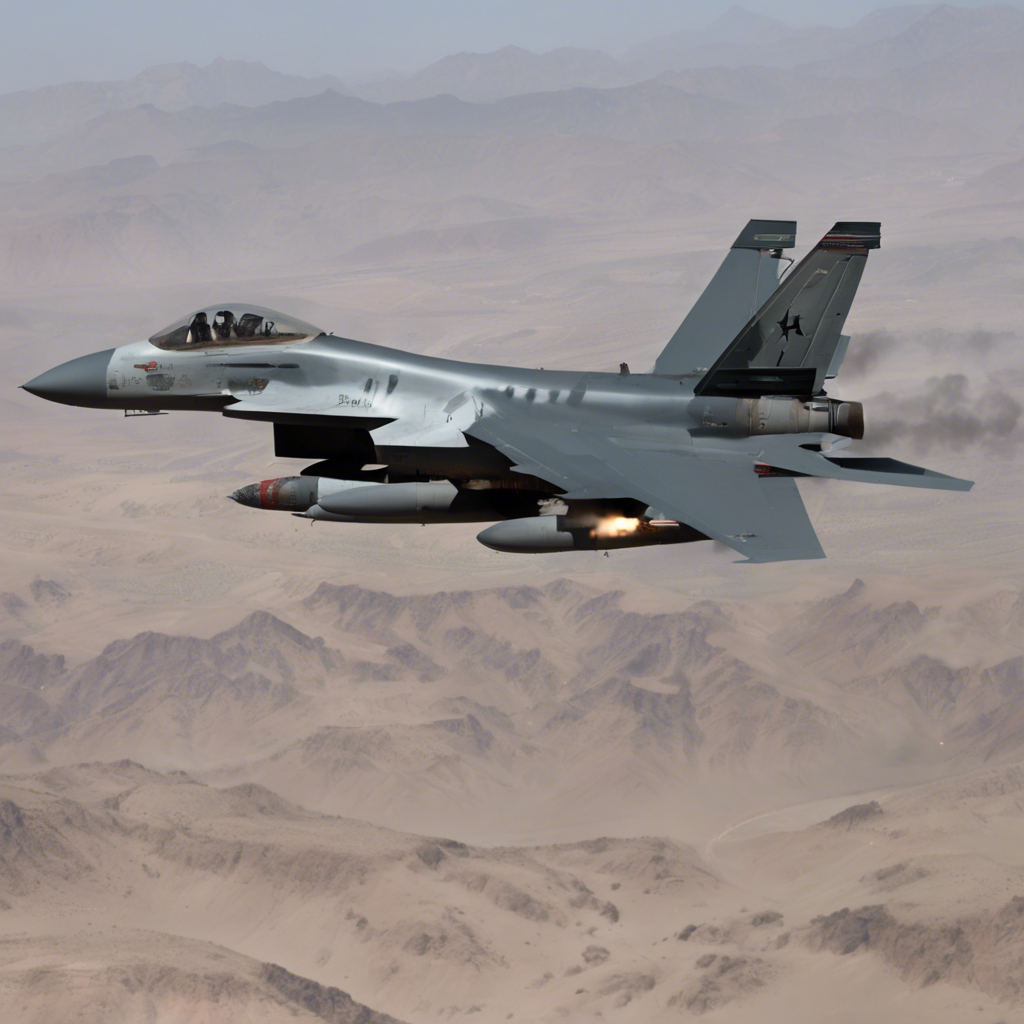U.S. and Britain Conduct Large-Scale Strikes on Houthi Militants in Yemen

Biden Administration Signals Sustained Campaign Against Iran-Backed Group
The United States and Britain have carried out a series of large-scale military strikes against Houthi militants in Yemen, signaling the Biden administration’s intention to wage a sustained and open-ended campaign against the Iran-backed group. These strikes, which targeted eight sites controlled by the Houthis, aimed to disrupt their ability to disrupt international sea lanes. While the strikes were broader than previous limited attacks, they were smaller in scale compared to the initial retaliatory salvos launched earlier this year, reflecting the administration’s attempt to strike a balance between neutralizing the Houthis’ threat and avoiding further escalation in the region.
A Growing Threat to International Sea Lanes
The Houthi militants in Yemen have become a growing concern for the international community due to their disruptive activities in vital sea lanes. The group has targeted merchant ships and military vessels in the Red Sea and the Gulf of Aden, posing a significant threat to global trade and security. The recent strikes carried out by the United States and Britain aimed to diminish the Houthis’ ability to carry out such attacks and restore stability to these critical maritime routes.
The Biden Administration’s Approach
The Biden administration’s decision to conduct sustained military strikes against the Houthi militants reflects a shift in U.S. policy towards the Iran-backed group. While the previous administration had sought to avoid getting entangled in the conflict, the Biden administration has taken a more proactive stance. By targeting multiple sites and disrupting key Houthi infrastructure, the U.S. and Britain aim to gradually weaken the group’s capabilities without escalating the situation further.
Balancing Act: Minimizing Casualties and Escalation
One of the key challenges faced by the U.S. and Britain in their campaign against the Houthis is striking a delicate balance between minimizing casualties and avoiding further escalation. The strikes conducted on Monday were designed to degrade the Houthi militants’ infrastructure while avoiding significant loss of life. By targeting radars, drone and missile sites, and underground weapons storage bunkers, the coalition forces aim to neutralize the Houthis’ ability to carry out attacks without provoking a wider war.
International Support and Concerns
The military strikes carried out by the U.S. and Britain have garnered international support, particularly from countries that rely on the Red Sea and the Gulf of Aden for trade. These nations view the Houthi militants as a threat to their economic interests and have welcomed efforts to restore stability in the region. However, there are also concerns about the potential for unintended consequences and further escalation. The delicate nature of the situation requires careful navigation and diplomatic efforts to prevent the conflict from spiraling out of control.
Humanitarian Crisis in Yemen
While the focus of the strikes has been on neutralizing the Houthi threat, the ongoing conflict in Yemen has resulted in a severe humanitarian crisis. The Yemeni people have been caught in the crossfire, facing widespread famine, disease outbreaks, and displacement. It is crucial that efforts to address the Houthi threat are accompanied by humanitarian aid and diplomatic initiatives to alleviate the suffering of the Yemeni population.
Conclusion:
The recent large-scale military strikes carried out by the United States and Britain against Houthi militants in Yemen signal a shift in the Biden administration’s approach to the conflict. By targeting key infrastructure, the coalition forces aim to degrade the Houthis’ capabilities without provoking further escalation. However, the delicate nature of the situation requires careful navigation to prevent unintended consequences and address the severe humanitarian crisis in Yemen. As the campaign against the Houthi militants continues, it is essential to strike a balance between restoring stability to international sea lanes and alleviating the suffering of the Yemeni people.

